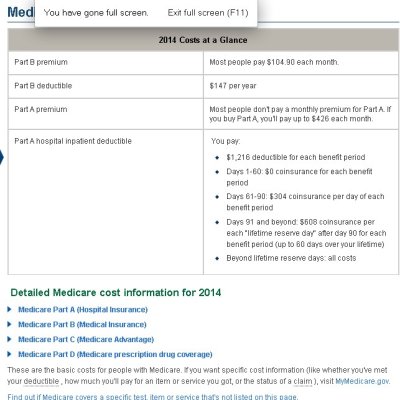My guess is Medigap policies have to meet Medicare mandated standards but are private insurance with no federal sponsor and subject to state regulation. So, only available where there is clear profit potential.Apparently not all Medicare supplemental policies are available in all states. Not sure why.
Sent from my two Campbell's Soup cans linked by a string
.
.


